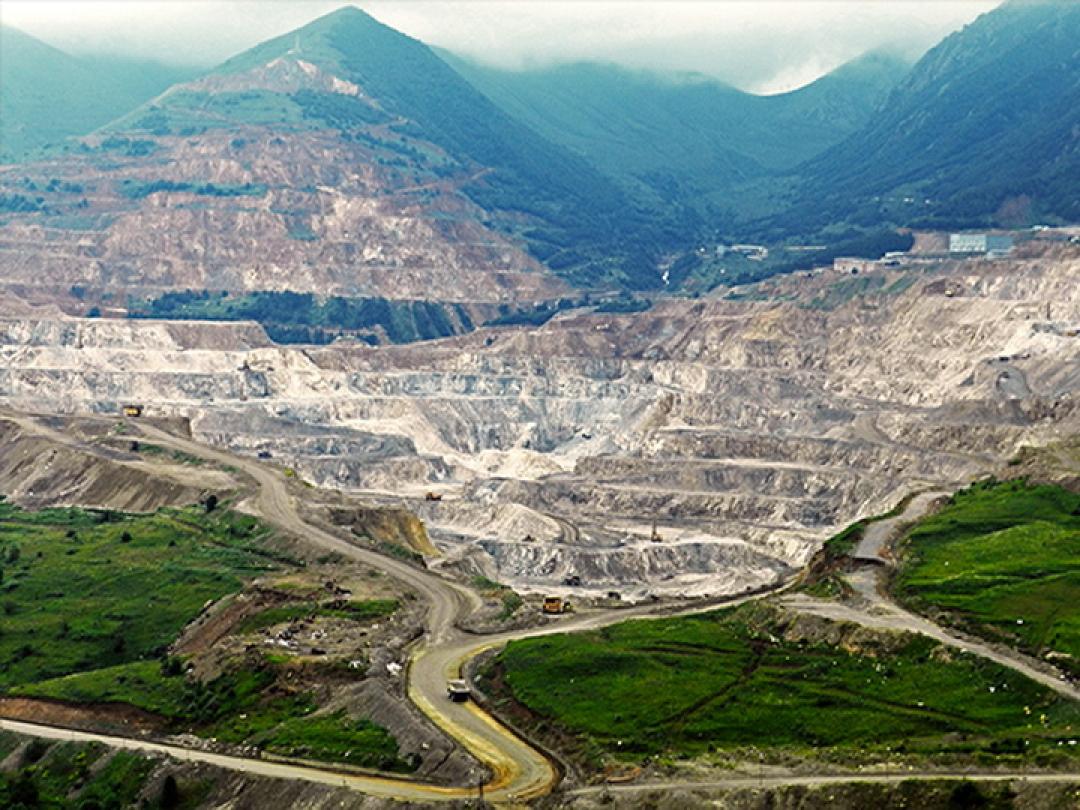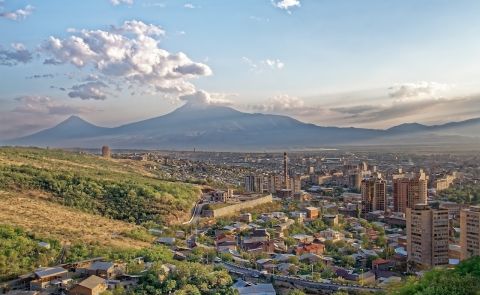
Open Democracy: UK and US governments pressured Armenia over the Amulsar gold mine

On 5 May, the United Kingdom-based independent media platform “Open Democracy” (OD) reported on an internal report of the EU delegation to Armenia regarding the controversial Amulsar gold mine project.
The report, obtained under Freedom of Information from the European External Action Service (EEAS), stated that the Armenian Prime Minister Nikol Pashinyan has been under pressure from the different stakeholders, including US and UK governments over the Amulsar standoff.
The report further emphasized that the US and UK governments hoped Lydian would not be discriminated against and a similar approach towards other mining companies operating in Armenia would be applied. Internal correspondence from the British Embassy in Yerevan obtained by OD contained redacted emails relating to Embassy meetings with both Lydian International and the Armenian government regarding Amulsar in 2018. The emails also included redacted internal Foreign Office correspondence concerning the mine. A list of contacts between the Embassy and Lydian shows regular contact over a five-year period.
Official statements by the UK Foreign Office tend to downplay support of Lydian International, which was set to become one of Armenia’s biggest taxpayers prior to the start of the public campaign in 2018. “British Embassy Yerevan officials regularly make representations to the Government of Armenia on a range of issues,” a Foreign Office minister commented in response to a parliamentary question earlier this year.
The report did not disclose the nature of official UK or US pressure on Armenia over the Amulsar gold mine. The EEAS noted that the ‘full public release of the whole document would reveal assessments concerning aspects and impact of this project by the EU Delegation in Yerevan intended for internal use only.” “Unimpeded access to the public of the internal note would also give valuable information to adverse actors to jeopardize the success of possible future EU diplomatic moves,” the EEAS stated in its accompanying letter.
The EU Delegation report remarked that Pashinyan is ‘having to weigh environmental considerations against the economic benefits of the [Amulsar] project’ in a mining industry which has a ‘notoriously poor’ environmental protection record. With the mine finished, Lydian says it was set to employ 750 people, create an additional 3,000 jobs via local companies, and contribute $488 million to the Armenian state budget over a ten-year period. The report notes the tense situation in which the company’s foreign backers, including the UK government, have found themselves in Armenia. The Amulsar standoff is ‘heavily politicised’, the report stated, ‘with opponents (but also some supporters) of the revolutionary Armenian authorities uniting around this issue, albeit pursuing different goals.’
A US State Department spokesperson said that the US hopes that “the Armenian Government and Lydian International will continue to work together to discuss all possible options for a mutually agreeable, impartial, and expeditious resolution regarding Amulsar. We wish to see an orderly resolution of this issue in accordance with the law. The predictable, transparent, and uniform application of the law to all investors assures stakeholders and provides confidence to existing and potential investors.”
The Armenian Foreign Ministry did not respond to a request for comment on the issue.
On 10 March 2020, a Lydian spokesperson Liana Hovsepyan announced that the company is planning to file a lawsuit against the Armenian government. "Following that lawsuit, we intend to demand that the government compensates for all the financial, psychological damage our employees have suffered during these two years. By the way, we will not only demand for those two years that we have not worked, but also for those years we had to work. We will go all the way, until the European Court, and demand compensation for all damages,“ she stated.
On 20 August 2019, Pashinyan declared his intention to allow the Anglo-American company Lydian to restart the gold mining project after the Lebanese company ELARD published their report stating that underground water at Amulsar would not have physical “connections” with mineral water sources in Jermuk or rivers and canals flowing into Sevan. Pashinyan’s decision still was not backed by the residents of Jermuk, environmentalists and some opposition lawmakers, sparking protests in the village of Jermuk (Caucasus Watch reported). On 4 September, the Armenian Ministry of Environment submitted the report regarding the environmental impact of the Amulsar gold mine project. According to Vladimir Karapetyan, the Prime Minister of Armenia’s spokesperson, the Ministry of Environment concluded that a new environmental impact assessment is needed in order to clarify if the gold mine could be exploited (Caucasus Watch reported). The topic remained silent in Armenia since then.
See Also


Nordic-Baltic Delegation Meets Armenian Leaders to Discuss Regional Cooperation and Peace

Azerbaijan Strengthens Energy Partnerships with Multiple Countries

BP Strengthens Presence in Azerbaijan’s Offshore Energy Sector

Netanyahu’s Letter to Aliyev: Mutual Trust, Solidarity Following Hamas Attacks, Facilitating Dialogue Between Israel and Türkiye

